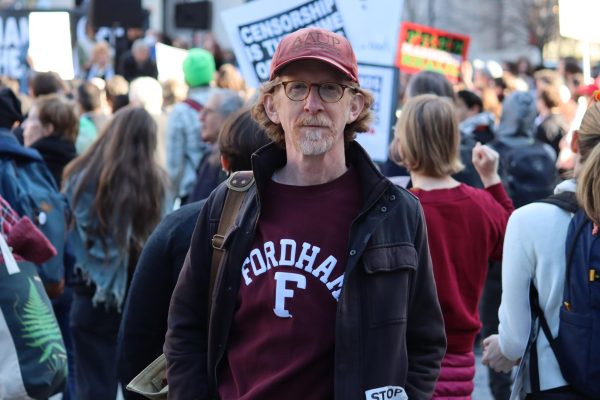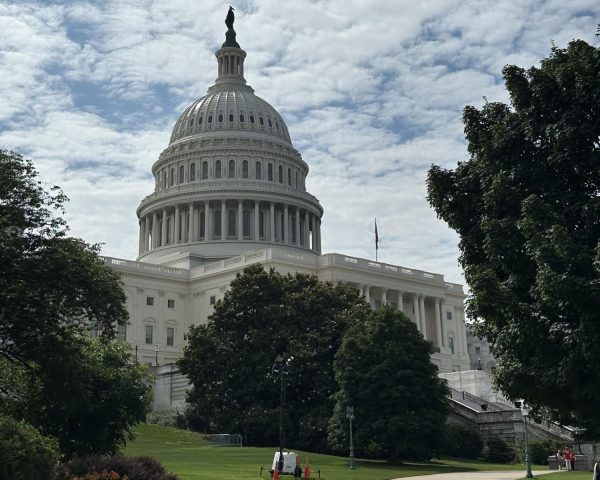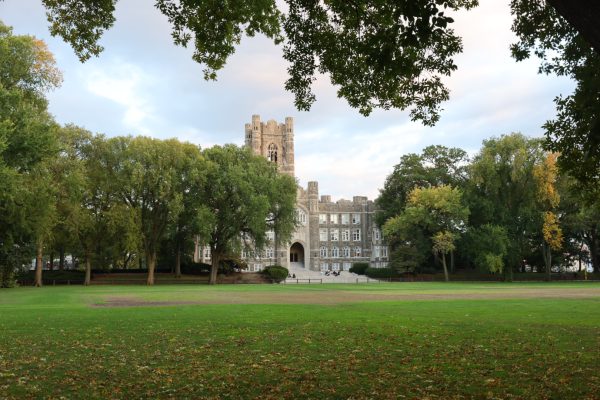Pulitzer-Prize Winner Ian Johnson Lectures on China, Religion and Authoritarianism
On Jan. 25, a panel was held at Fordham University’s campus at Lincoln Center about religious life in an authoritarian China and if citizens can freely practice their faiths under an authoritarian regime. The panel was held by Ian Johnson, a Pulitzer Prize-winning journalist and author who has lived in China for over two decades and focuses on the topics of civil religion and civil society. He has covered subjects regarding China for over 37 years and has been awarded various prizes from Stanford University and Harvard University, as well as a multitude of grants to fund his research.
The main focus of the lecture has to do with how religious faiths are being treated within China’s current political system of government. According to Johnson, the Chinese Communist Party (CCP) recognizes only five specific faith groups: Protestantism, Catholicism, Islam, Daoism and Buddhism. The practice of other faiths may be tolerated, but are formally prohibited. At one point in the 20th century, anti-religious campaigns were waged across China. As a result, various places of worship were either closed or destroyed. However, there eventually came a point in time where government officials decided to cooperate with religious leaders, making the practice of religion in China more permissible.
When this happened, some forms of religion began to be seen as a part of Chinese history and culture. For this reason, political leaders began to place deeper emphasis in regards to how they uphold the tradition and culture of China. Originally, “government leaders used to be judged by economic growth … now it is also about supporting traditional culture by supporting cultural projects,” said Johnson. Despite this, however, there still remains a substantial level of religious persecution in China.
“After the 2008 Olympics, the Chinese government began to realize that religion was part of a problem, which was the rise of civil society and other groups that were harder to control,” said Johnson.
Religions such as Islam and Christianity began to be deemed as “problematic faiths” due to their “foreign ties” with institutions such as the Vatican, while religions such as Buddhism and Taoism are seen as indigenous to China, despite Buddhism having origins in India. Because of this, the CCP formed the Catholic Patriotic Association (CPA) as an organizational body of Chinese Catholics that is not affiliated with the Vatican.
On the other hand, the Chinese government has made it increasingly more difficult for Muslim groups, particularly the Uyghurs, to partake in pilgrimages such as the hajj. According to the Global Times, the “Chinese Islamic Association is the only organization that is authorized to arrange for Chinese Muslims to go to Mecca in Saudi Arabia to perform hajj.” Violators of this policy could face extreme legal consequences. Moreover, men having specific beards or women wearing hijabs could be seen as forms of extremism. According to Johnson, stores and restaurants that do not serve pork could also be seen as extremist, including those who sell halal food.
It is estimated that roughly 30 million Muslims live in China, with the majority being Uyghurs residing in northwestern China, specifically within the border province of Xinjiang. On the other hand, there are “roughly 60-70 million Christians in China based on guesstimate numbers,” said Johnson.
Over the past years, China has also been accused of human rights violations against Uyghurs. In recent years, the Chinese government has established internment camps and has violated the human rights of the Uyghurs as a whole.
When asked why the CCP has a problem with Uyghur Muslims specifically, Johnson said that, “the government makes it seem like Muslims are extremists. This is basically a form of chauvinism. It’s an effort to impose Chinese culture on minorities… […] The Chinese government doesn’t want to allow true autonomy in certain religious minority regions.”











































































































































































































